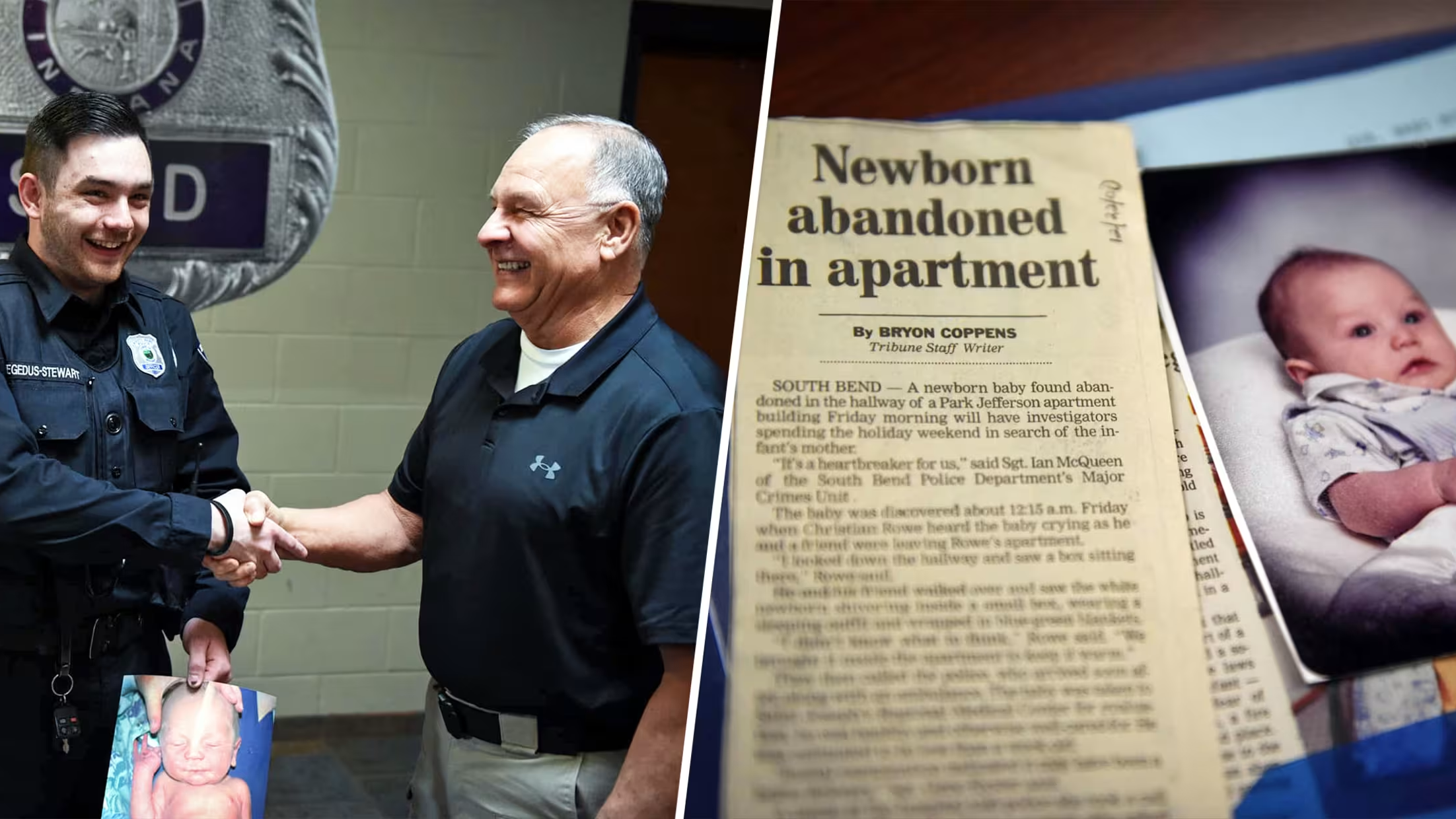
A 5-year-old girl whose body was found encased in concrete and dumped in the woods of rural southeast Georgia has been identified nearly 35 years later, authorities said Monday as they announced the child's mother and a live-in boyfriend have been charged with her murder.
DNA tests that began years ago and a crucial tip investigators received in January finally enabled them to determine that Kenyatta Odom was the young victim known for decades only as Baby Jane Doe.
Kenyatta was killed in her hometown of Albany, Georgia, before her body was dumped 110 miles away outside the small city of Waycross, Georgia Bureau of Investigation Agent Jason Seacrist said. It was discovered among broken furniture and other trash left in the woods on Dec. 21, 1988.
“Baby Jane Doe is no longer unnamed, is no longer unknown," Seacrist told a news conference that the GBI streamed online from Waycross, about 100 miles southwest of Savannah. “The baby that was thrown out into a trash pile has been identified, and we’re working to bring justice to her.”
Get Tri-state area news and weather forecasts to your inbox. Sign up for NBC New York newsletters.
The girl's mother, 56-year-old Evelyn Odom, and Ulyster Sanders, her boyfriend at the time of the child's death, were arrested Thursday. A grand jury in Dougherty County, which includes Albany, indicted both on charges of felony murder, first-degree cruelty to children, concealing a death and other counts.
Both defendants remained jailed Monday. It was not immediately known if either of them had an attorney who could speak on their behalf.
The girl’s death and her identity had been a mystery since a man walking in the woods in December 1988 stumbled on a TV cabinet filled with concrete in an area strewn with trash. The find made him suspicious enough to call the Ware County Sheriff's Office.
U.S. & World
Sheriff Carl James was one of the department's detectives at the time and was dispatched to the scene that day.
“Upon my arrival, I really was not prepared for what we were about to find,” James told reporters.
Concealed in the concrete, investigators found a trunk. Packed into the trunk was a duffle bag. And inside that bag was a child's body wrapped in a blanket.
James said the case always held a special interest for him. Over the decades, he said, investigators followed hundreds of leads and tips, most of them leading nowhere.
They checked all local reports of missing children at the time, but none matched the remains of the girl they had found. Social service agencies couldn't turn up any connections. They combed through missing person cases throughout Georgia and the U.S., all without luck.
Authorities did, however, find one important clue near the TV cabinet in the woods — a copy of The Albany Herald newspaper. Seacrist said that's when investigators began to suspect the child may have lived in Albany — a two-hour drive from where the body was found.
Decades passed. In 2019, the GBI began attempts to compare DNA extracted from the girl's remains with genealogy databases. Seacrist said those efforts succeeded last year in confirming the child had family in Albany. But investigators still weren't able to pinpoint the identity of the girl's parents.
Around the case's 34th anniversary in December, the GBI once again made a public appeal for any information that might help crack the case. This time the request came with a reward offer of $5,000 from an anonymous donor.
A woman called in January with a critical tip.
“She knew that there had been a child who had gone missing and that her mother said that the child had gone to live with her father," Seacrist said. “This person never really believed that story.”
Seacrist said that tip enabled investigators to finally identify young Kenyatta and bring charges in her death. He declined to comment on a possible motive or how the girl died. News outlets reported the indictment said the child died after her feet and legs were submerged in hot water.
"We believe that there is evidence beyond a reasonable doubt that will lead to justice being found for Kenyatta,” said District Attorney Greg Edwards of the Albany-based Dougherty Judicial Circuit.



